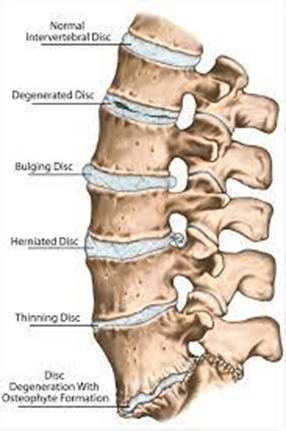A nurse is caring for a client who has degenerative disc disease and has been diagnosed with cauda equine syndrome. Which of the following would be an expected finding with this condition?
Paralytic lleus
Blood pressure 80/48 mm Hg
Weakness in one or both legs
Potassium 3.2 mEq/L
The Correct Answer is C
Choice A Reason:
Paralytic ileus is incorrect. Paralytic ileus is a condition characterized by obstruction of the intestines due to paralysis of the intestinal muscles, resulting in symptoms such as abdominal pain, bloating, and constipation. Paralytic ileus is not typically associated with cauda equina syndrome, which primarily affects the nerves in the lower back and lower extremities.
Choice B Reason:
Blood pressure 80/48 mm Hg is incorrect. While cauda equina syndrome can cause neurological symptoms such as lower extremity weakness, numbness, and bowel or bladder dysfunction, it is not typically associated with alterations in blood pressure. Blood pressure changes may occur in response to pain or other systemic factors, but they are not specific to cauda equina syndrome.
Choice C Reason:
Weakness in one or both legs is correct. Yes, weakness in one or both legs is a characteristic finding of cauda equina syndrome. Compression of the nerve roots in the lower spinal cord can lead to motor deficits, including weakness, difficulty walking, and loss of reflexes in the lower extremities.
Choice D Reason:
Potassium 3.2 mEq/L is incorrect. Serum potassium levels are not typically associated with cauda equina syndrome. Abnormal potassium levels may be indicative of electrolyte imbalances, which can occur in various medical conditions but are not specific to cauda equina syndrome.

Nursing Test Bank
Naxlex Comprehensive Predictor Exams
Related Questions
Correct Answer is ["A","D","E"]
Explanation
Choice A Reason:
Epithelial cells is correct. Epithelial cells lining the airways play a role in initiating the inflammatory response in asthma by releasing cytokines and other inflammatory mediators. These cells can contribute to the circulatory surge of inflammatory cells and cytokines seen in status asthmaticus.
Choice B Reason:
OT lymphocytes is incorrect. There is no specific cell type known as "OT lymphocytes." It's possible this may refer to T lymphocytes (T cells), which are involved in the immune response in asthma but are not typically associated with a circulatory surge in status asthmaticus.
Choice C Reason:
Hyperreactivity is incorrect. Hyperreactivity refers to the exaggerated response of the airways to various stimuli, leading to bronchoconstriction and inflammation. While hyperreactivity is a characteristic feature of asthma, it does not directly contribute to a circulatory surge of inflammatory cells and cytokines.
Choice D Reason:
Mast cells is correct. Mast cells are key players in the pathophysiology of asthma. They release various inflammatory mediators, including histamine and leukotrienes, which contribute to airway inflammation, bronchoconstriction, and mucus production. Mast cells can participate in the circulatory surge of inflammatory cells and cytokines in status asthmaticus.
Choice E Reason:
Inflammation is correct. Inflammation is a hallmark feature of asthma and plays a central role in the pathogenesis of status asthmaticus. The inflammatory response involves the recruitment and activation of various inflammatory cells, release of cytokines, and other mediators that contribute to airway obstruction and systemic effects.
Correct Answer is A
Explanation
Choice A Reason:
Smoking tobacco is the primary and most significant risk factor for emphysema. Tobacco smoke contains harmful chemicals and toxins that directly damage the lungs. Chronic exposure to cigarette smoke leads to inflammation and destruction of lung tissue, particularly the alveoli, contributing to the development of emphysema.
Choice B Reason:
Between 20 to 30 years of age. While smoking at any age is harmful to lung health, the risk of developing emphysema increases with prolonged exposure to tobacco smoke over many years. Emphysema is typically a disease of middle to older age, with symptoms often appearing after years of smoking.
Choice C Reason:
Asthma is a chronic inflammatory condition of the airways characterized by reversible airflow obstruction and airway hyperresponsiveness. While asthma and emphysema are both respiratory diseases, they have distinct pathophysiological mechanisms and risk factors. Asthma is not a direct cause of emphysema, although some individuals with poorly controlled asthma may develop chronic obstructive pulmonary disease (COPD), which includes emphysema as one of its components.
Choice D Reason:
Pollution is not correct. Environmental pollution, including air pollution from industrial emissions, vehicle exhaust, and particulate matter, can contribute to respiratory problems and exacerbate pre-existing lung conditions. While exposure to pollution can worsen respiratory symptoms and lung function, it is not the primary cause of emphysema. However, long-term exposure to certain pollutants may increase the risk of developing respiratory diseases, including COPD, which encompasses emphysema.

Whether you are a student looking to ace your exams or a practicing nurse seeking to enhance your expertise , our nursing education contents will empower you with the confidence and competence to make a difference in the lives of patients and become a respected leader in the healthcare field.
Visit Naxlex, invest in your future and unlock endless possibilities with our unparalleled nursing education contents today
Report Wrong Answer on the Current Question
Do you disagree with the answer? If yes, what is your expected answer? Explain.
Kindly be descriptive with the issue you are facing.
